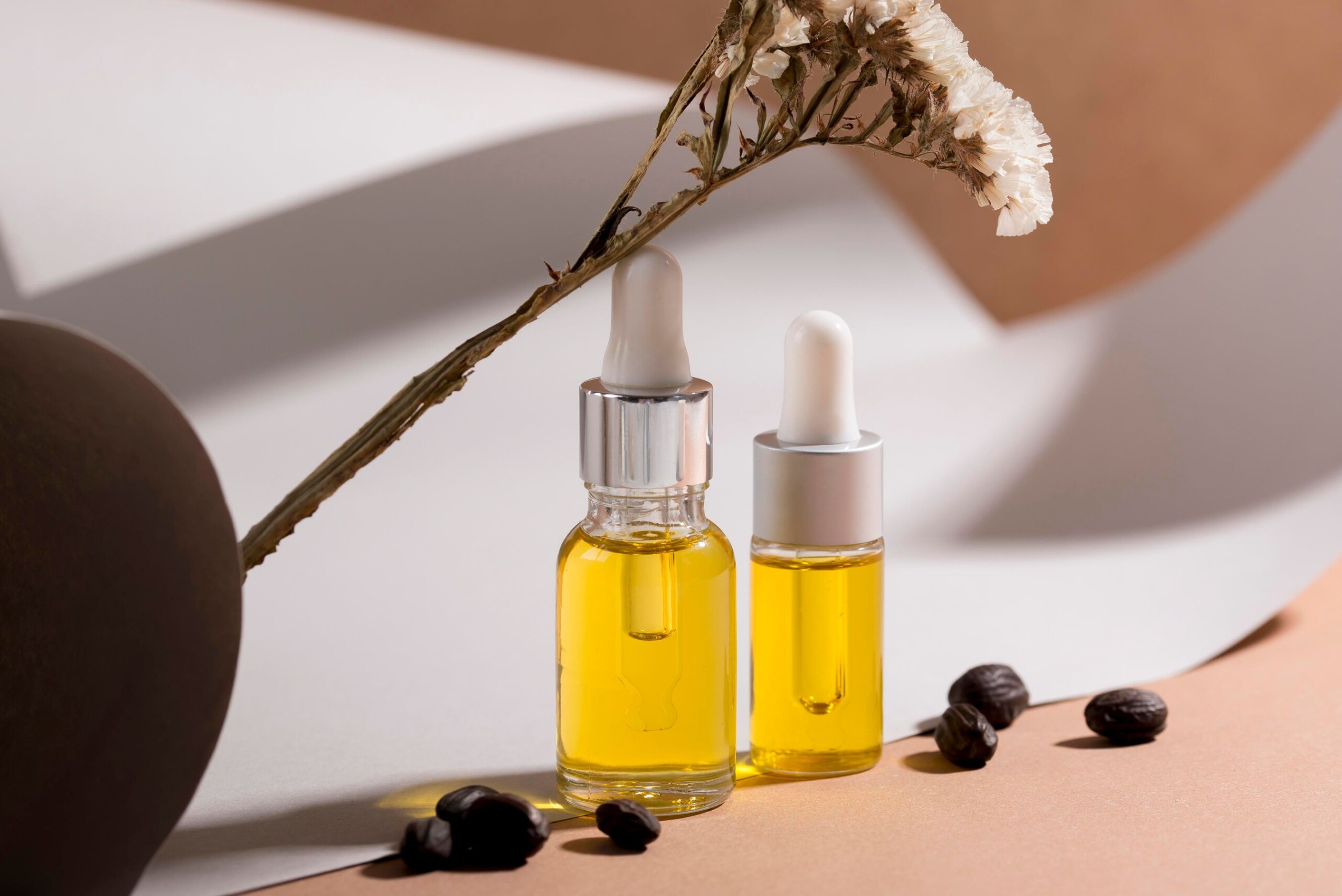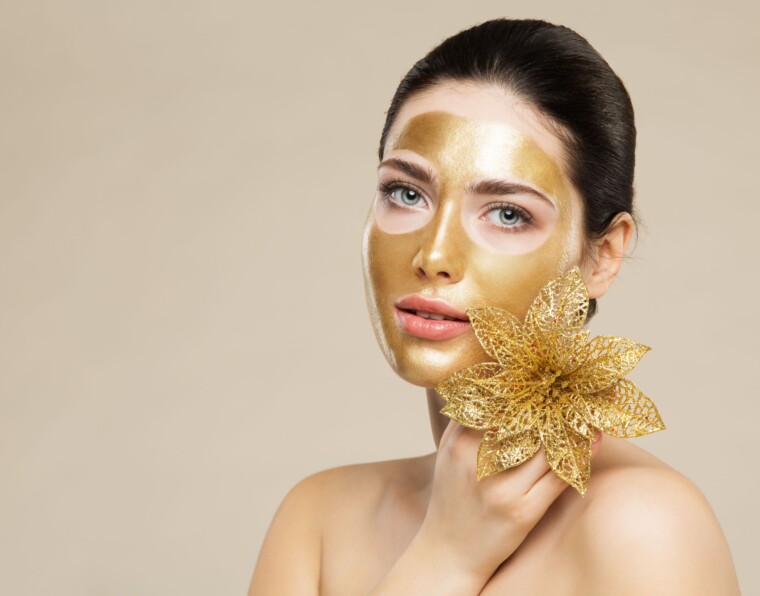Not too long ago, the phrase “oil” was associated with the skincare industry as something that should be removed from your skin rather than applied again. The times, however, as Bob Dylan once remarked, are a-changin’. When you go down any skincare aisle, you’ll immediately realize that there are not just many products with oil as an ingredient, but also several different oils being marketed. Of course, there is the very popular coconut oil, hailed as a one-stop shop for all your cosmetic requirements, the overhyped Moroccan argan oil for hair, and the list goes on and on. Undoubtedly, it may be daunting, particularly in light of the fact that your decision on which oil to use in your beauty regimen will primarily determine its effectiveness. Not all oils are created equal, breaking news. Jojoba oil has many benefits, however, whether you’re an oil veteran searching for one that can handle a range of conditions or an oil novice seeking for a definite safe selection. Following, dermatologists detail the specific characteristics that make this oil distinct from the competition.
What is Jojoba Oil?
A tough perennial that grows in North America is the jojoba plant. It produces a nut with several medicinal benefits in addition to thriving in the severe desert environments that would kill most other living things.
You may make oil from the jojoba plant’s nut. Because it is so soft, jojoba oil may be used as a carrier oil for blending other essential oils. It may also be used by itself.
Jojoba oil is a common component in skin care regimens. And there are valid justifications for it. There is a ton of evidence in favor of using pure jojoba oil has benefits for dry skin, acne, and a host of other skin issues.
To learn more about the benefits of jojoba oil and how using jojoba oil for your skin might help you, keep reading.
Jojoba Oil Benefits for Skin
Helps maintain skin hydration: Jojoba oil, like other oils, is an excellent emollient, softening and smoothing your skin. Additionally, it contributes to the protection of the skin barrier by lowering trans-epidermal water loss and sealing in moisture when paired with occlusive substances like beeswax. It also helps balance those levels because it behaves so much like the natural oil on our skin, which is helpful for anyone who has either too much or not enough of it.
Offers antioxidant protection: Antioxidant protection is provided by jojoba oil, which is a high source of flavonoids and vitamin E, a powerful antioxidant that protects the skin from oxidative damage, a factor in the development of wrinkles. It’s still a good option to use at any age to help both protect and brighten the skin, she says, adding that more studies are required to confirm its direct anti-aging benefits.
Has anti-inflammatory properties: has anti-inflammatory qualities that calm skin: Do you have rosacea, eczema, or just a sensitive complexion? According to Nussbaum, jojoba oil keeps skin quiet and comfy while minimizing redness. She says that the oil is a strong source of B-complex vitamins in addition to vitamin E. Because of these vitamins and the anti-inflammatory properties, jojoba oil has been used by Native Americans for thousands of years to treat wounds.
Is effective in treating acne: Jojoba oil has many benefits for skin that is prone to acne. First and foremost, if you have oily skin and want to use an oil, you must look for a product that is non-comedogenic and won’t clog pores. Two, you’re taking advantage of all those anti-inflammatory advantages (as well as potential antibacterial qualities, though more research is needed), both of which can aid in clearing up breakouts. The natural oil production of your skin may be balanced, which brings us to our last point. Jojoba oil has been shown to reduce acne because an excess of sebum can frequently lead to breakouts. Despite the fact that this oil is acne-friendly, it’s important to remember that prescription medications or over-the-counter remedies may also be necessary to completely treat your acne.
How to Use Jojoba Oil?
Jojoba oil doesn’t need dilution and may be used topically, in contrast to several other essential oils.
You should do a patch test before using jojoba oil or any product for the first time to ensure you are not allergic. You may do a patch test by doing the following:
- Apply 3-4 drops of jojoba oil on the inner forearm.
- Wait 24 hours after applying a bandage to the area.
- Check the skin’s condition by removing the bandage. You’re safe if there are no symptoms of hives, redness, or discomfort.
- Your intended outcome will determine how you should utilize jojoba oil. It may be used as an anti-aging serum on your face before bed or as a lip balm to moisturize dry, chapped lips.
As research participants did, you may also create a DIY mask treatment with jojoba oil and other organic components to cure acne.
Jojoba oil is a well-liked oil-based makeup remover since, unlike most other components, it may be used near the eye region.
Side Effects
In general, this particular ingredient has no real disadvantages. Jojoba oil typically has a low risk of causing irritation and is well tolerated. Rarely, it can result in a rash or reaction, which is typically a sign of a true allergy. Before using a new product all over your face, you can test it out on a small test area if you want to be extra cautious.
Top 5 Jojoba Oil Products to Try
Origins Original Skin Retexturizing Mask
Jojoba oil, as we previously said, may be found in a variety of ways, such as exfoliating jojoba beads. These tiny creatures buff skin to a flawless sheen while delicately but efficiently removing any dead skin cells that could be interfering with your radiance. The kaolin clay in the mix also gets to work, acting as a magnet to draw out dirt and pollutants that have been trapped in your pores. The outcome? a complexion that is amazingly clear and silky.
This oil, which mixes jojoba oil with other floral oils and claims components that are 99 percent organic, lists jojoba oil as its first (and only) ingredient. Additionally, only a drop or two is sufficient to cover your whole face. For skin that glows more brilliantly, use it twice day.
Ren Evercalm Overnight Recovery Balm
To help hydrate and nourish your skin, leave this nourishing balm on overnight. Along with jojoba oil, glycerin, sunflower seed oil, beta-glucan that moisturize and heal, it also includes sunflower seed oil. Not to mention that it successfully reduces redness and is devoid of a lengthy list of dubious components, making it an excellent option for skin that is sensitive.





1 Comment
Desiree
An intriguing discussion is definitely worth comment. I believe that you ought
too publish more about this suject matter, itt may not bee a
taboo matter buut typically people do not discuss such topics.
To thee next! Alll the best!!